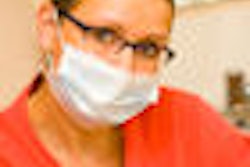
In an online survey conducted by Lanmark Group, some 300 dental hygienists responded candidly to 50 wide-ranging questions, revealing what they love and hate most about their profession -- and the dentists and patients they work with.
Their answers portray a group of dedicated dental professionals who are passionate about their work and helping patients but frustrated with the constraints placed on them by dental boards and with a general lack of respect by employers and the public.
"We wanted to get into the minds of the hygienist community and identify their needs," said Howard Klein, president of Lanmark Group, noting that a total of 284 hygienists from across the U.S. participated in the survey, conducted September 29 through October 27, 2009. "Some questions were product-specific, while others were oriented toward career goals and what goes on in daily practice."
“It doesn't surprise me that 'lack of autonomy' was one of the top responses.”
— Lynn Ramer, L.D.H., president,
American Dental Hygienists'
Association
For example, 94% of the respondents said that most people think of hygienists only as a profession that cleans teeth, while 74% said they communicate more with the patients in their practice than the dentists do. And when asked "What is the worst thing about being an R.D.H.?" the bulk of responses focused on practice dynamics and physical demands. Typical answers included:
- Finding a practice where you are treated with respect and acknowledged as a professional by the dentist
- Not being able to practice independently
- Not being able to diagnose
- Lack of understanding on the part of the public regarding the scope and breadth of dental hygienist services and qualifications
- The physical toll on your body -- back and neck problems, repetitive stress issues
"It doesn't surprise me that 'lack of autonomy' was one of the top responses," said Lynn Ramer, L.D.H., president of the American Dental Hygienists' Association (ADHA) and a clinical hygienist in Indiana for nearly 30 years. "We work in a team setting, but we pretty much work in our own little world, focusing on prevention while the dentist focuses more on restoration. And in private practice, a lot of states still require direct supervision."
When asked what the best thing is about being an R.D.H., the majority of respondents to the Lanmark survey cited the ability to make a difference in their patients' lives and the flexibility the profession affords them.
"If you need to take a break -- if you decide to have a family, for example -- hygiene is probably one of the easier professions to come back into," Ramer said. "While there are advances that occur, it is pretty easy to get up to speed on them. And a lot of offices don't hire full-time hygienists, only part time, and are pretty forgiving if you're trying to work your schedule around your children."
Recession taking a toll
Not surprisingly, the majority of respondents (97%) said they believe the U.S. is in an economic recession, with 52% noting that they have seen a drop-off in hygiene business at their practice(s) this year.
"For the most part, hygienist grads can come out demanding the same wages as someone who has been in an office for 10 to 15 years, and this has been a source of irritation for hygienists for years," Ramer said. "But things are changing with the economy. Offices are not as busy, and I'm hearing that hygienists are being laid off, with some doctors opting to take on the hygiene appointments."
And while 59% of survey respondents said they do not support the current healthcare reform proposals, the ADHA believes that oral health should be included in any healthcare reform legislation, she noted.
"We have members who are for reform and those who aren't, but they all agree that if it is going to happen, it should include oral healthcare," Ramer said.
It is also interesting to note that about half of the respondents feel the dental industry is being too conservative with respect to the oral-systemic link. In fact, Lanmark found that many hygienists are eager to gain access to more evidence-based clinical information, Klein noted, and all but one of the survey respondents said they believe there is an oral-systemic link between periodontal disease and other health issues such as diabetes and cardiovascular disease.
Ramer believes the growing body of research in this area will serve to enhance the hygienist's role in clinical practice.
"The more we learn and the more the general public understands about the link between what is going on in your mouth and the rest of your body, the more the value of the hygienist increases," Ramer said. "I think that some of the changes and advances in the pipeline, like oral DNA testing to check a patient's genetic predisposition to periodontal disease, are going to lead to more customized, personalized medicine, and the hygienists will be playing more of a role in this."
Copyright © 2009 DrBicuspid.com



















